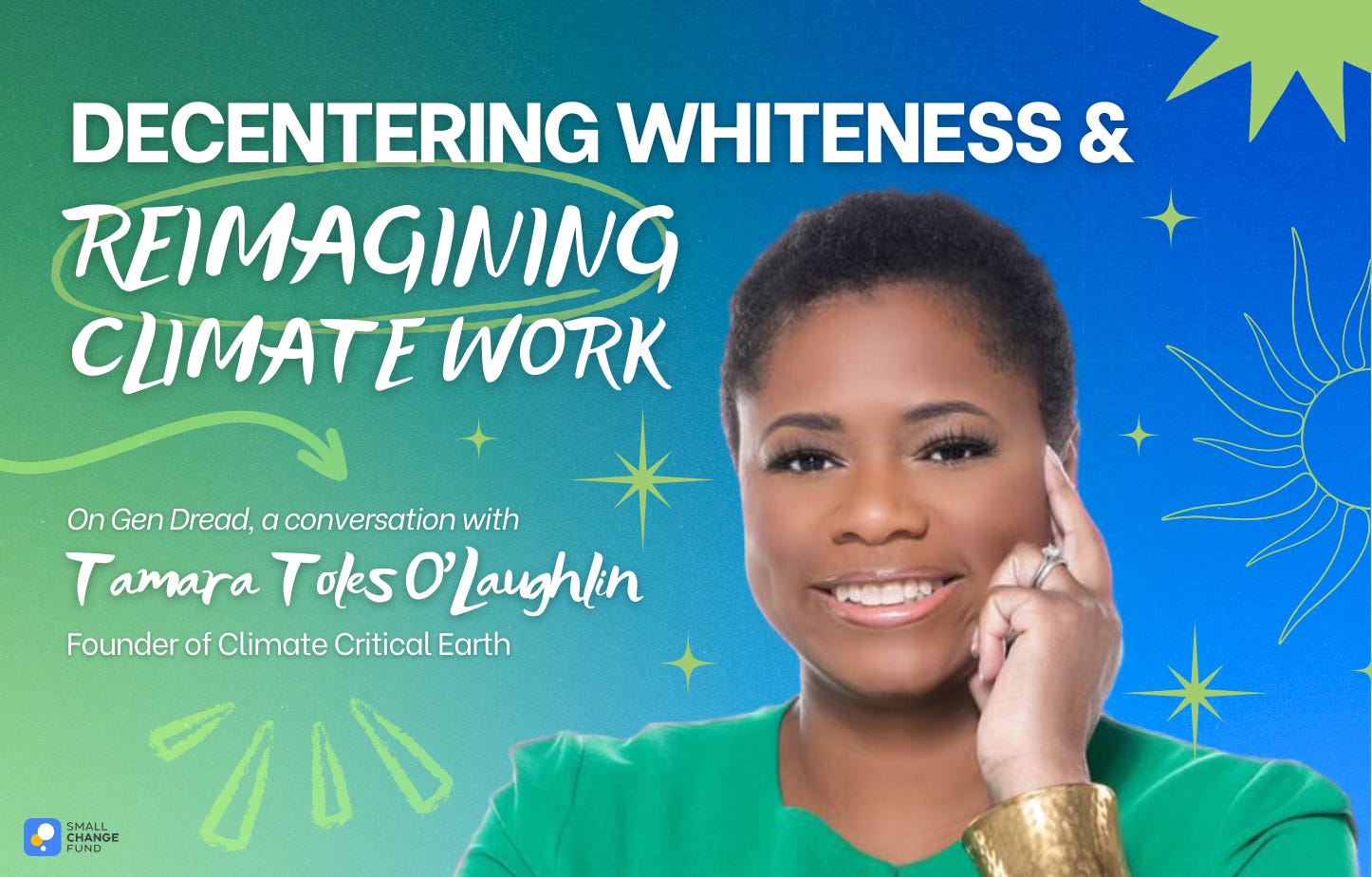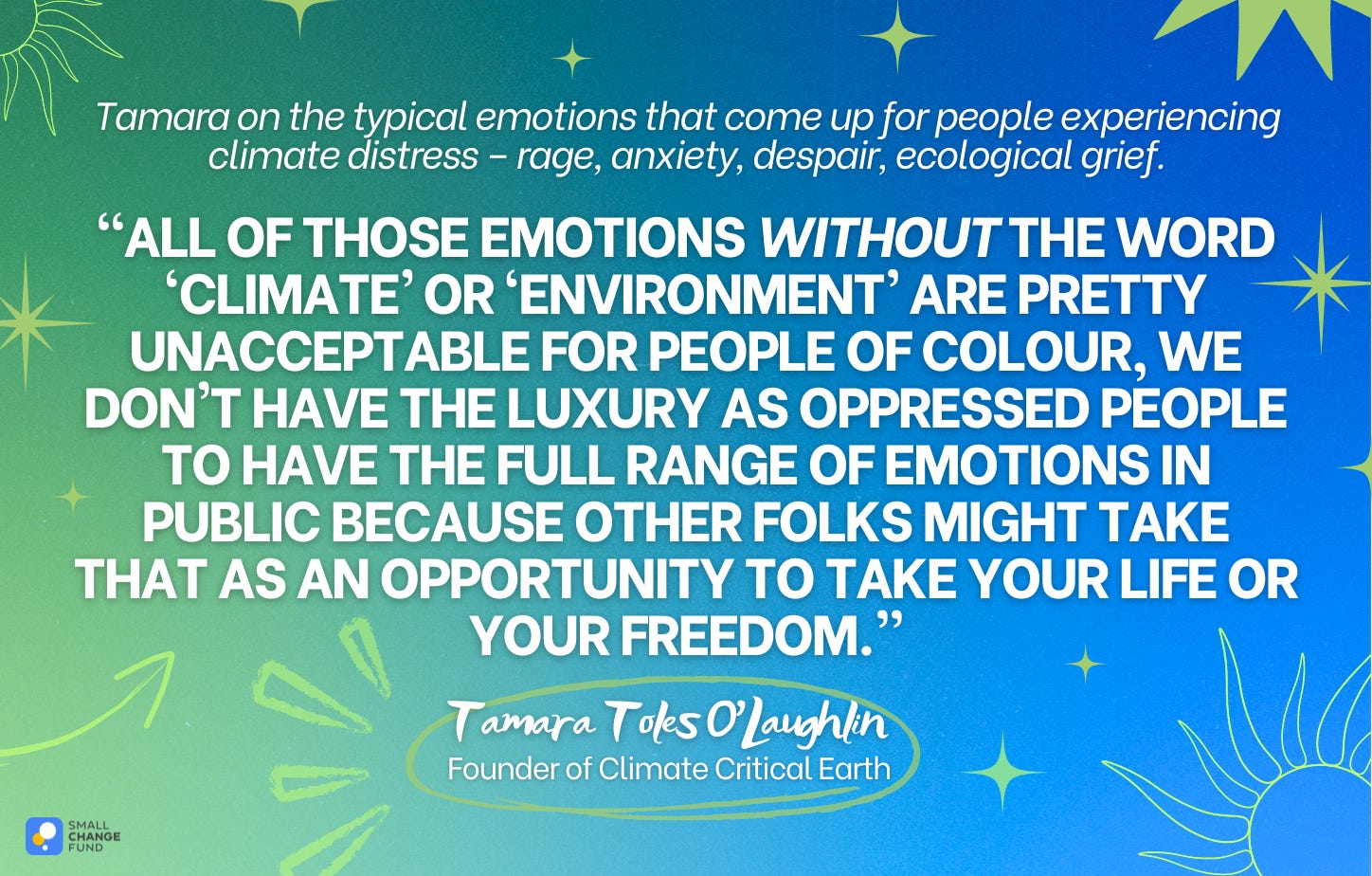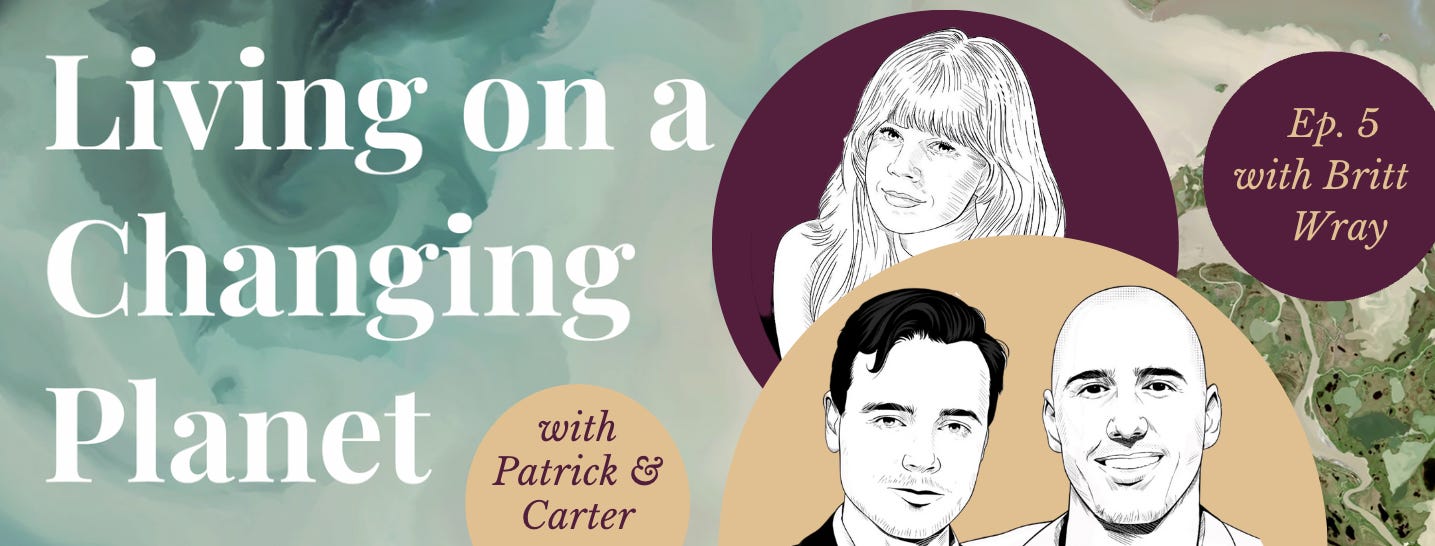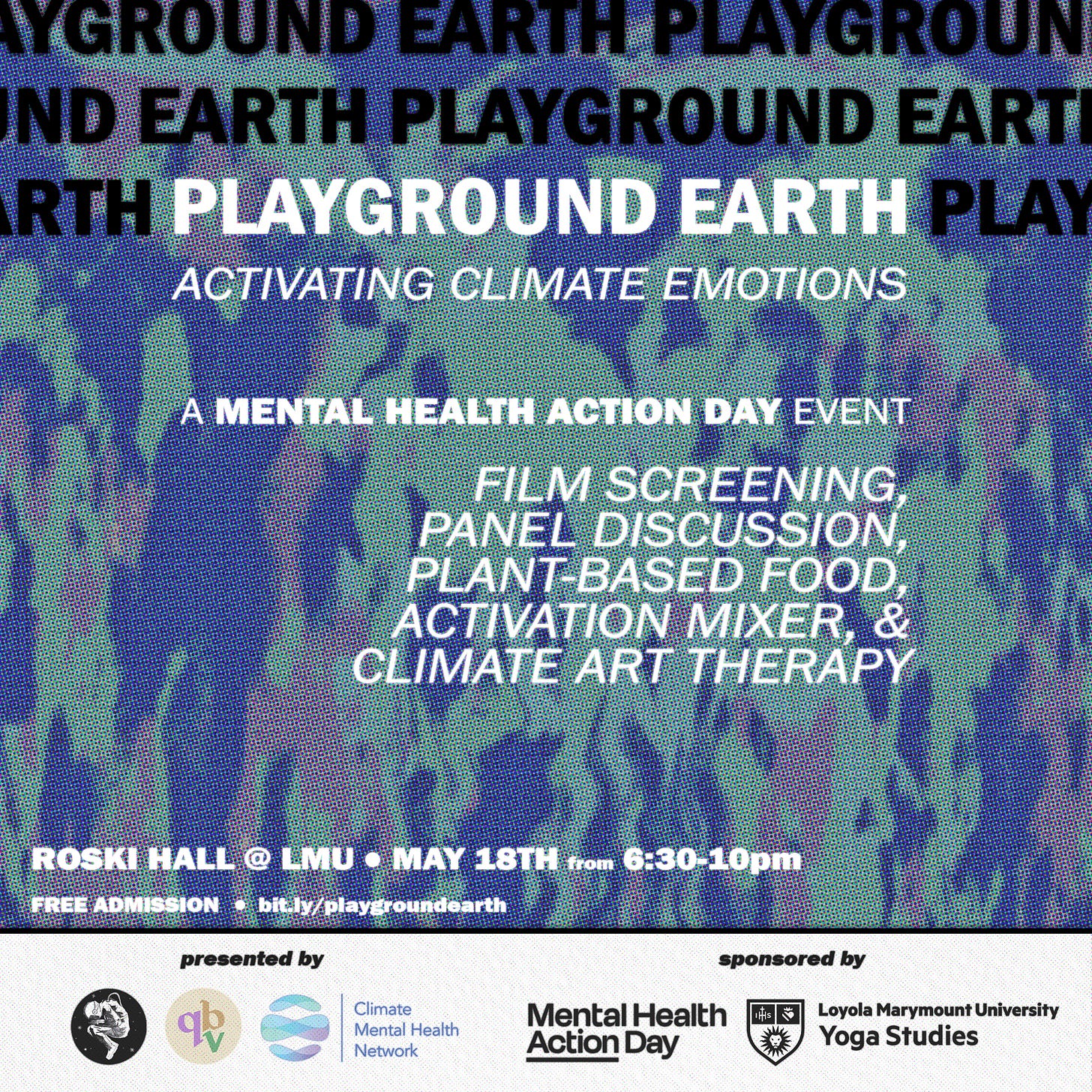Tamara Toles O’Laughlin is decentering whiteness and reimagining climate work
A conversation with the founder of Climate Critical Earth
Hi there!
Welcome to Gen Dread, a newsletter about how the climate crisis is making us feel, why that’s happening, and what we can do about it. Subscribe now to find community, comfort, and practical coping strategies from experts all around the world.
How would you react if your workplace urged you to double your time off?
Or triple it?
It’s a good question to consider as we welcome the arrival of May, which is Mental Health Awareness Month.
More than once, Tamara Toles O’Laughlin has offered her co-workers exactly that. The response?
Refusal.
“In my last two or three roles, I've been in a position to help people rethink work,” she says. “And I’ve watched them resist it – like, vehemently – because they’re worried that they'll be the one who lets everything fall. So I thought, well, it’s time for us to build something that exists to help people remember who they are and how to practice rest with other folks, because clearly it's not being built into the work anywhere else.”
The revolutionary force she’s created is called Climate Critical Earth, a Black women-led collective that prioritizes rest and care for the people doing climate justice work. A place that specifically supports and centres Black and other people of colour’s unique experience of the climate movement, which has tended to assimilate their voices into the white perspective or exclude them altogether. And a community space for people who want to radically reinvent the way power is distributed both within a workplace and across the globe. Climate Critical Earth places people of the global majority at the centre of its visions and decisions – a crucial and long overdue reversal of the traditional narrative that sees the global North as the leader on climate action.
“I feel like of all the experiments we've ever tried in shifting power, this – giving folks who have been demonstrating leadership by their sheer will to survive a chance to make decisions – it’s the least we could do given how much time we wasted doing it the other way,” Tamara says.
You’re probably used to meeting new people and being asked “what do you do?” or “where do you work?” But when you walk through the doors at Climate Critical Earth, the focus is different: How do you want to work? Who are you working with? What are you trying to get done? And how can we help? Its members go on continuous rest retreats, take unusually generous amounts of time off, engage in community care practices, and help co-create a work environment that’s dismantling the traditional triangular hierarchy of leadership.
“We actually don't focus on leaders,” Tamara says. “We focus on every kind of person. I think this is an all-hands-on-deck kind of moment that we're in, and I think leadership shows up in every kind of role. We need the folks who roast coffee and the folks who gather fish and the people who care about waste and the folks who give good talks. We need all of them to care about this work.”
Racism means only some of us are allowed to express climate grief.
This shift toward true equity is especially crucial for Black climate activists.
“For myriad reasons, there has not been a lot of safe places to do environmental work in a person of colour's body,” Tamara says. “So you end up going into a historically white-led organization, and even though every part of it is very painful, you might have formed a relationship or funded a community or built a project with people you're now invested in. And so we wanted to create a space where if the only thing tethering you to toxic work is that you don't know where else you could do it, you could bring it here if you wanted.”
Tamara considers the typical emotions that come up for people experiencing climate distress – rage, anxiety, despair, ecological grief. “All of those emotions without the word ‘climate’ or ‘environment’ are pretty unacceptable for people of colour,” she explains. “We don't have the luxury as oppressed people to have the full range of emotions in public because other folks might take that as an opportunity to take your life or your freedom.”
“I think climate grief and anxiety is like a fog rolling over so many people, but the way it hits them is so very different,” she continues. “Because on top of feeling like you might be harmed if you express rage of any kind, you also might feel like, if you’re in the Global South for example, the percentage of this fog that's rolling over everyone, well, so little of it is something you're responsible for. And that turns into depression if you cannot express it.”
Tamara sees that stoic silence woven into the history of the United States itself. “The very foundation of this country and its current iteration is dependent on Black people being invisible and essential. Like, we are required for every kind of work, but we really shouldn't be seen doing any of it.”
And the toll those dueling expectations take on a person’s mental health is incalculable. But once Climate Critical Earth started building a place for oppressed people to name and feel the full extent of their feelings, some fundamental questions arose.
“Do people feel psychologically safe?” Tamara asks. “If we offer them that space, would they even unpack it based on their marginalization? Do they feel like it is even possible for them to have climate rage?
That’s one of the big questions at the heart of a new report Climate Critical Earth published last week. People from across 108 climate organizations collaborated to explore burnout in the climate movement: who is experiencing it? What’s causing it? What are the solutions? And what are the obstacles in the way of people accessing those solutions?
Here are some key findings from the report.
Burnout in the environmental justice world is widespread and serious;
People working in this realm are especially vulnerable to burnout because they often feel a disconnect between how hard they’re working and how little tangible difference it appears to be making;
Burnout is showing up in everyone, from traditional leaders at the top to everyone working under them;
Systemic racism exacerbates and intensifies the symptoms of burnout for Black people, Indigenous people, and other people of colour, and often this happens because BIPOC are working in climate justice spaces designed by and for white people;
There are inadequate resources in place to help people cope with the severity of burnout they’re experiencing, and these resources need to be better realized, better funded, and better communicated to those in need;
The majority of people surveyed (63%) say that despite the burnout, if they were magically offered a job outside the climate sector with the same pay and benefits, they would not take it.
Tamara sums it up by saying: “So basically everyone is toasted.” But the report wants to lift some of the onus off the workers themselves and call on organizations to step up and take better care of their people. “We recognize that individuals are burned out but because of the way we have designed labour, people feel personally responsible for that,” she says.
When climate justice workers are rested and well cared for, it benefits everything from their bodies to their work to the planet itself.
“So much of what climate grief and anxiety takes away is your own vision,” Tamara explains. “Your ability to see alternatives for yourself, much less alternatives for the work. We want people to feel like they've been gifted something because they have time with their own thoughts to practice their ways of working and have creative outlets. We want to watch people slowly recover that.”
Head to Climate Critical Earth to learn how you can help support their work and to read the full 2023 Climate Burnout Report.
If you liked reading this, feel free to click the ❤️ button on this post so more people can discover it on Substack 🙏🏼
Making Waves
A podcast series with hosts Patrick and Carter, a clinical psychologist and a climate scientist trying to de-stigmatise our natural, emotional reactions to living on a changing planet. On its fifth episode, our own Britt Wray joined in to speak about the need for emotional strength training for the climate crisis, collective coping techniques and the challenging decisions young people face around having children on a warming planet.
PBS Vitals is a series that’s taking a new approach to health and medicine. Hosts Alok Patel, MD, and Sheena Williams RN are going beyond the headlines to answer your questions on the latest health topics. No judgment, no taboos. Just 100% science-based information.
In this episode of Vitals, Sheena dives into the topic of climate anxiety with the help of Gen Dread’s Britt Wray, who studies the intersection of climate change and psychology, and Merryl Reichbach, a climate-aware therapist.
Get your free tickets now for Playground Earth: Activating Climate Emotions, an MTV Mental Health Action Day event on May 18th in Los Angeles. This community-focused and youth-led event centers the discussion of the mental health impacts of the climate crisis with a film screening of Gen Z Mental Health: Climate Stories and clips from Overheated: The Documentary; a panel discussion on climate mental health moderated by Leah Thomas of Intersectional Environmentalist; and activation tables for mental health and climate actions. Interested in getting involved? Email tehya@strandedastronaut.com to learn more about partnering or volunteering for the event.
As always, you can share your thoughts and reach the Gen Dread community by commenting on this article or replying to this email. You can also follow along on Twitter and Instagram.
‘Till next time!










The founder of Climate Critical Earth would find much to admire in Joseph, the earliest economic statesman. He put the farmers on the relief rolls! When the drought ended, they got their land back, at very low rent. Joseph prepared for the whims of nature, and the founder of Climate Critical Earth also realizes we must prepare for the whims of nature - that we have freedom to act, yet
our freedom to act has little if any effect on the planet, the solar cycles of the sun, etc. It is important to accept this paradox, and realize that logic cannot solve the mystery. Joseph's greatness is in a large measure due to his awareness that he is serving a higher destiny.
Thomas Mann said, "Joseph is the ideal manifested, as the union of darkness and light, feeling and mind, the primitive and the civilized, wisdom and the happy heart - in short, as the humanized mystery we call man." Exploring burnout in the climate movement reveals, in the words of the founder, "So basically everyone is toasted." It appears that the safe spaces, the "continuous rest retreats," and the "unusually generous amounts of time off," are not enough for this organization. We must remind ourselves that the struggle for human identity in a precarious, brute life is a universal struggle, and not be so self-focused that all we can observe is so-called "burn-out." Those of us who do physical labor, real work in the real world, see no merit in this.